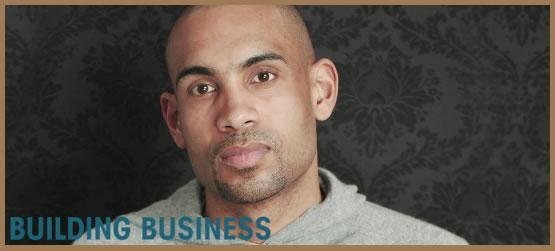Four long years of rehab and surgeries and waiting and worrying were pure agony for Grant Hill. He never knew when—or if—he would return to the basketball court, and if he did, whether he could be effective again. For some players, four years are an entire NBA career; for Hill, it was an interlude. A productive interlude.
Instead of wasting his time, Hill took it upon himself to learn. He watched basketball from a different perspective. And he threw himself into the business world with the goal of developing his commercial interests as thoroughly as possible.
“When I got hurt [in 2000], I didn’t want to think about my life after basketball,” Hill says. “I wanted to think about basketball. But [the injury] was a blessing. I learned a lot, took classes and picked people’s brains in the business world. I took a very methodical approach.”
Today, Hill is back on the court, performing at his customary All-Star level. And he is becoming a growing player in the the real estate game. He has embarked on a residential development project that he hopes will be another step on the road to a full-fledged career in the field.
Hill has teamed with his friend and business partner Rodney Brown to build five moderately-priced single-family homes in Orlando. The properties, which have three bedrooms and two baths, will range in price from $129,000-139,000 and are an opportunity for families to find quality housing at a time when most developers are focusing on building McMansions. “I feel like we’re doing something for the community,” Hill says. “A lot of developers want to go for higher profit margins. We’re giving back and increasing the value of the community.”
The modest project also gives Hill a chance to learn the business on a somewhat smaller scale. He is a partner in some commercial interests and has worked tirelessly with his wife, Tamia, on Habitat for Humanity projects. This is the next step for Hill, who describes the process as having “a lot of moving parts.” Ultimately, though, he enjoys it because developers are problem solvers more than anything else. For someone who has been operating without an agent since his second year in the League, way back in ’96, that part of the real estate business appeals to him.
Since Hill is rather busy from October until May (or June, he hopes), he can’t be on site too much or participate in every meeting that occurs regarding the project. By working with Brown, Hill can concentrate on his game during the season while still staying involved in the process. Hill sees that his parents and grandmother are actively involved in a variety of business pursuits and wants to create as many opportunities for himself as possible.
“I’ve been around that my entire life,” Hill says. “When I came out of college, I found that most CEOs of Fortune 500 companies don’t have agents. They deal with lawyers. That’s what I have done.
“I’ve tried to prepare myself to be a businessman. I have employees. I evaluate them and hire and fire them. By taking part in this development project, I can get the real estate process down and from there expand and do bigger things.”
This is a first step. There will be others—after basketball, of course. After spending so much time on the sideline, Hill wants to continue building his career on the court, too.
By Michael Bradley

